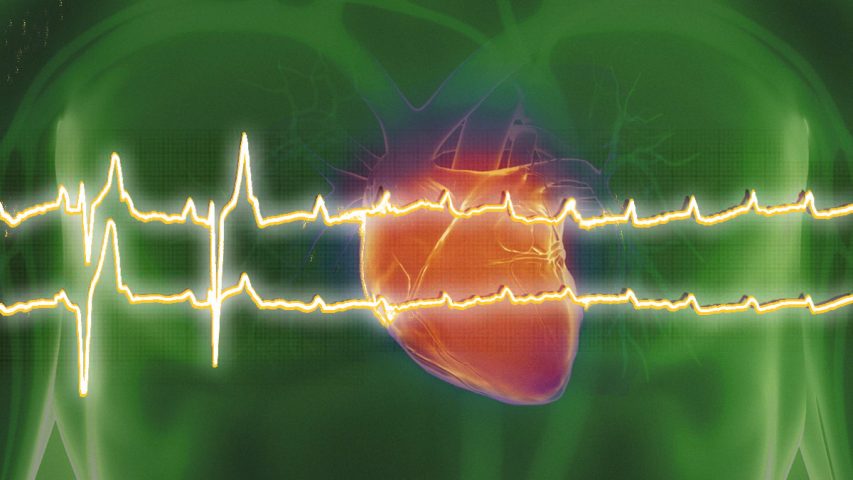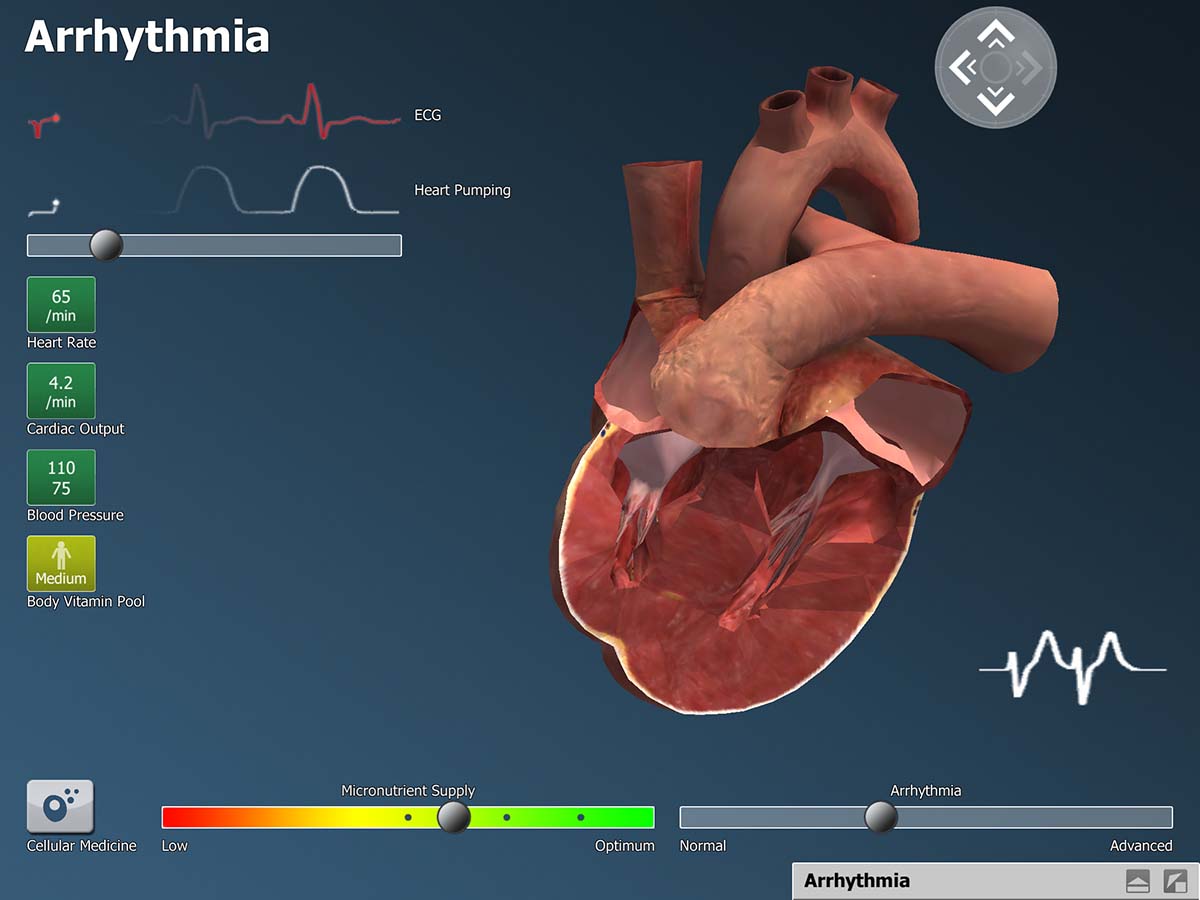- Have any questions? Contact us!
- info@dr-rath-foundation.org

Baking Soda Could Help Fight Inflammatory Diseases
June 27, 2018
Annual Global Pharma Sales To Reach $1.5 Trillion By 2021
June 29, 2018How To Prevent And Correct Irregular Heartbeat Using Natural Approaches

Irregular heartbeat, also known as arrhythmia, is a growing global health problem. Worldwide it is estimated that around 33.5 million people suffer from atrial fibrillation, the most common form of the condition. With estimates suggesting atrial fibrillation by itself now accounts for between $16 to $26 billion of annual healthcare expenses in the United States, as well as 1 percent of the entire National Health Service budget in the United Kingdom each year, it is clear that the citadels of conventional medicine are failing to address the primary cause of such disorders. Fortunately, therefore, Dr. Rath’s revolutionary Cellular Medicine approach now offers a safe and effective solution.
What is irregular heartbeat?
The terms ‘irregular heartbeat’ or ‘arrhythmia’ are used to describe a group of medical disorders in which the beating of the heart is abnormal, too fast, or too slow. Occasional palpitations and skipped beats are very common, particularly in older people, and are usually harmless. But when the irregular beats last long enough to affect the functioning of the heart, symptoms such as fatigue, dizziness, sweating, fainting, shortness of breath, or chest pain can occur. In extreme cases, patients can even suffer a heart attack.
Resulting from a disturbance in the creation or conduction of the electrical impulses responsible for the heartbeat, or alternatively from damage to the heart muscle such as can result from a heart attack, irregular heartbeat conditions can be very worrying for patients afflicted with them. Unfortunately, however, conventional medicine has consistently failed to provide sufferers with any proper answers.
Conventional treatments for irregular heartbeat
As with other cardiovascular problems, the primary treatment offered to patients with irregular heartbeat involves the use of pharmaceutical drugs. Examples include blood-thinning drugs (anticoagulants), calcium channel blockers, and beta-blockers. Inevitably, however, all these synthetic chemical medications carry a risk of serious side effects.
Doctors will sometimes also cauterize the areas of heart muscle tissue that create or conduct the disturbed electrical impulses. This procedure involves burning the affected tissue using a catheter emitting heat energy.
In cases of slow or irregular heart rhythms, a device called a ‘pacemaker’ may be implanted into the patient’s chest. An electrical device with a long-lasting battery, a pacemaker is connected to the heart using wires that have sensors at their tips. When the sensors detect that the heartbeat is abnormal, they direct the pacemaker to send electrical pulses to the heart in an attempt to correct the rhythm.
Ultimately, however, none of these conventional treatments correctly address the primary cause of the problem.
Cellular Medicine provides the answer to irregular heartbeat

BodyXQ is the world’s first interactive education program that enables you to travel inside the organs of the body and explore their functions.
Visit the Google Play Store to download our BodyXQ Apps for Android, or the Apple Store to download the Apps for iOS. BodyXQ Apps for AndroidBodyXQ Apps for iOS
As Dr. Rath’s Cellular Medicine research has shown, the most frequent cause of irregular heartbeat is a chronic deficiency of certain essential micronutrients in the cells that generate and conduct the necessary electrical impulses responsible for the heartbeat. Long-term deficiencies of the required micronutrients can cause or aggravate disturbances in the creation or conduction of these electrical impulses, thus resulting in the triggering of abnormal heart rhythms. It therefore follows that the primary answer for preventing and correcting irregular heartbeat problems is an optimum supply of the correct micronutrients.
In addition to his Basic Cellular Health Recommendations, Dr. Rath recommends that all patients suffering from irregular heartbeat also take the following micronutrients in higher dosages:
| VITAMIN C – A vitally important nutrient, vitamin C supplies energy for the metabolism of each cell. It also supplies the bioenergy carrier molecules of the vitamin B group with lifesaving cellular energy. |
| VITAMINS B1, B2, B3, B5, B6, B12 AND BIOTIN – The B vitamins are bioenergy carriers of cellular metabolism, particularly for the heart muscle cells that generate and conduct the electrical impulses required for a normal heartbeat. |
| COENZYME Q10 – Also known as ubiquinone, this nutrient is the most important element in the ‘respiratory chain’ of each cell. It plays a vital role in the energy metabolism of heart muscle cells. |
| CARNITINE – Another important nutrient, carnitine contributes to the efficient utilization of cellular bioenergy in the ‘power plants’ (mitochondria) of heart muscle cells. |
| MAGNESIUM AND CALCIUM – Together with potassium, the minerals magnesium and calcium are required for the optimum conduction of electrical impulses during the heartbeat cycle. |
You can learn more about Dr. Rath’s Cellular Medicine approach to controlling irregular heartbeat in chapter 6 of his book, Why Animals Don’t Get Heart Attacks…But People Do! As always, if you have any questions, please feel free to contact us.



